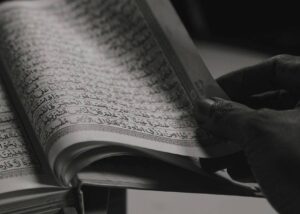In Surah Maryam verse 15, Allah (Most High) says ‘And peace be upon him the day he was born and the day he dies and the day he is raised alive,’ about the Prophet Yahya (Peace Be Upon Him). I was confused as it says and the day he dies, as he did die before the revelation of the Quran, could you explain this to me?
Quran
Hadith
Islamic Text
The present tense is related to the time of birth in Surah Maryam verse 15.
وَسَلَامٌ عَلَيْهِ يَوْمَ وُلِدَ وَيَوْمَ يَمُوتُ وَيَوْمَ يُبْعَثُ حَيًّا
And peace be upon him the day he was born, and the day he dies, and the Day he is raised alive. (Surah Maryam, Verse 15)
The question here seems to be about the use of the present tense in the verse of the Holy Quran with regards to the death of Sayidina Yahya (peace be upon him). Why is the present tense being used when Sayidina Yahya (peace be upon him) had already passed away at the time of the revelation of the Holy Quran?
When you look at the verse, Allah (Most High) starts off by speaking about the birth of Sayidina Yahya (peace be upon him) and that is mentioned in the past tense. So in relation to the birth, the death is in the future. That is why the present tense (which is also the future tense in the Arabic language) is used. So when we analyse it in context we realise that the present tense is not used in relation to the time of the Quranic revelation, rather in relation to the birth of Sayidina Yahya (peace be upon him).
والأظهر أن الْمُضَارِع لكون الموت مستقبلًا بالنظر إلَى الولادة وإن كان ماضيًا بالنظر إلَى وقت النزول (حاشية على البيضاوي)
The correct opinion is that the present tense is used because death is in the future in relation to the birth, although it is in the past from the perspective of the time of revelation. (al-Haashiyah ala al-Baydaawi)
It is worth reiterating that in the Arabic language, the present tense is also used for the future. The very same verb can refer to the present or the future. In this case it is referring to the future.
And Allah (Most High) Knows Best.
– Answered by Shaykh Noorud-deen Rashid (01.08.2021)
See also:
Explaining Surah Yunus Verse 94
See also (video):



